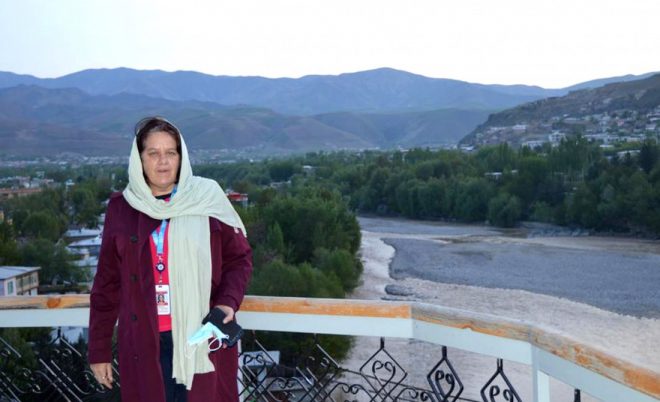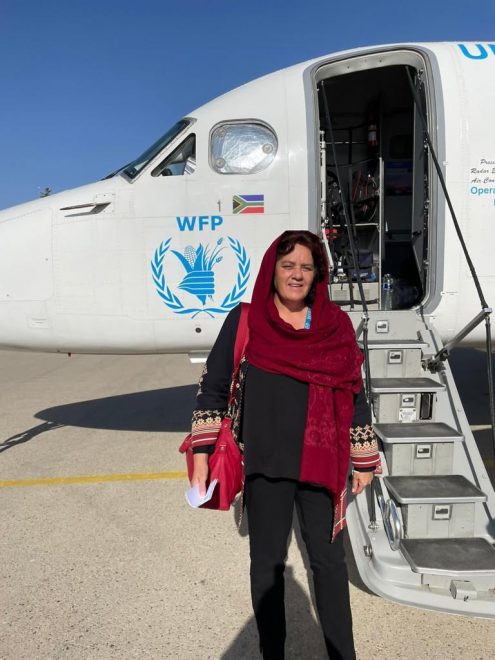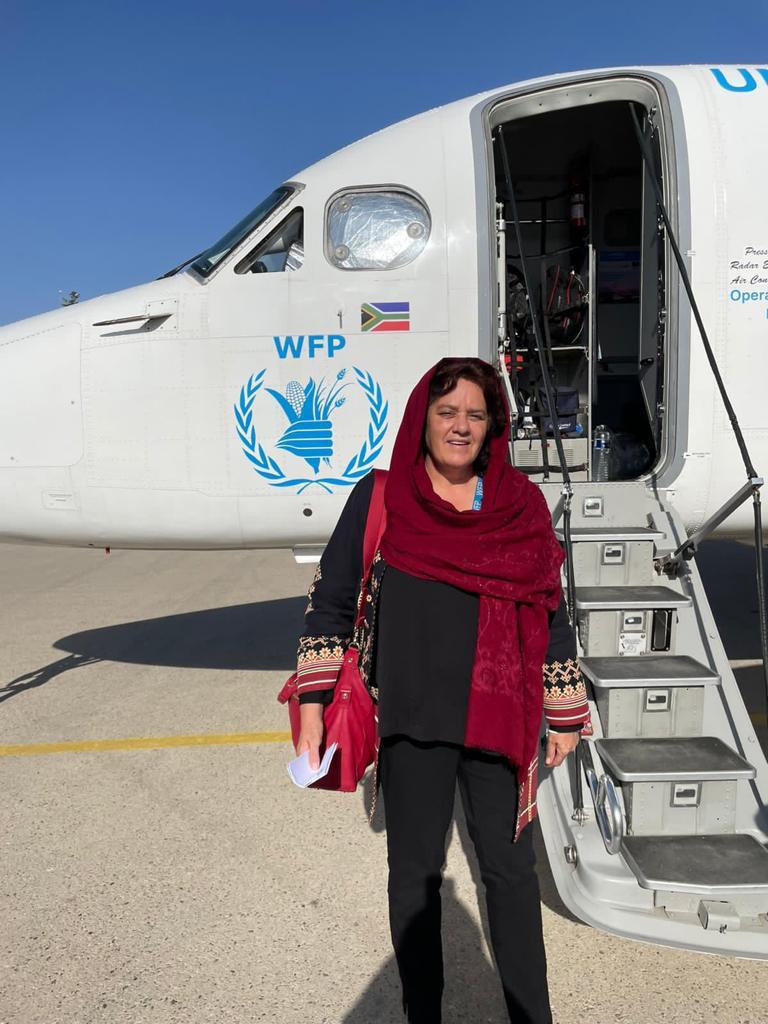
The Donegal-born leader of the World Food Programme in Afghanistan, Mary Ellen McGroarty says that there is an ‘uneasy calm’ in the country at present.
While more than 100,000 people managed to escape the country’s uncertain future since the Taliban took the Afghan capital Kabul a month ago, those left behind are grappling with a new reality.
Speaking to the Donegal News from Kabul on Monday afternoon Ms McGroarty said that her work with the World Food Programme and the United Nations means that she will not be leaving southern Asia any time soon.
“There’s an expectation that when you sign up for these jobs that it comes with the territory. There’s an uneasy calm here now but people are coming to terms with what I suppose is a new normal.
“Once the chaos of the airport disappeared when the last plane went up on August 30th things have calmed down and it has allowed people to readjust,” she said.
Forty years of war have already devastated Afghanistan, causing suffering, death and widespread poverty and there’s growing concerns now that the militant group is back in power.
FREE FALL
“The economy is in free-fall. All overseas assets have been frozen – World Bank, IMF and development funding have all been suspended so cash is very limited. You can only take out $200 a week which is having an incredible impact on people’s ability to buy food. The price of wheat, their main staple food, is way up while there’s not too much work out there at present,” she said.
It’s Monday evening in Kabul and Ms McGroarty explains that the Afghan people are still adjusting to a new reality. The United Nations said it was “deeply worried” for the future of girls’ schooling in Afghanistan.
“It’s a very sad reality, especially the last couple of days when we hear the secondary schools are only open for boys at the moment. We’re hoping that we don’t revert back to the 1990s again,” she said.
Last week, she visited Mazar, another major city in Afghanistan, and met women who hadn’t eaten in three days.
“People are still trying to maintain their jobs in the health centres but they’re selling their fridges and cars to be able to eat.
“Before August 15 (Taliban takeover) it was already a difficult year here in Afghanistan. The country is to the forefront of climate change. We’re into our second drought in four years while there was thirty per cent less snow going into the irrigation systems to service the agricultural land last year.
“There’s a wheat deficit of 2.5 million tonnes while 500,000 people have been displaced due to the conflict this year alone. That’s on top of the three million already displaced while Covid-19 has also had a huge impact here. They don’t have safety nets, like the Covid-19 payments in Ireland.
“There’s 14 million people suffering from severe hunger, including over two million children under the age of five, and that’s even before the Taliban fall-out,” she said.
MALNUTRITION
A native of Mountcharles, Ms McGroarty said that malnutrition was increasing rapidly across the country.
“The situation in the hospitals is very worrying and to compound matters there’s also a measles outbreak. People’s resilience and ability to cope is eroding day by day.
“It’s going to be another harsh winter and we’re very worried about how people are going to keep themselves warm and fed. We’re scaling up our efforts massively but it’s a race against time and we’re also banging the table for money,” she explained.
While it’s Ms McGroarty’s ‘turn’ to get home this Christmas there are more pressing issues to keep her mind occupied these days.
“We’ve a big job on now trying to reach 14 million people before the end of the year so it’s all hands on deck. I would like to get home to see my mum, my husband and family but we’ll worry about that another day,” she said.
The eldest daughter of Kathleen and the late Willie McGroarty, Mary Ellen studied law in NUI Galway before taking up employment with GOAL.
“It was after the genocide in Rwanda. I went out for a year initially and it just grew from there,” she recalled.
What’s now the DCR (Democratic Republic of Congo), known as Zaire at time, Rwanda, Uganda, Tanzania, Zambia, Burundi, Chad and South Sudan have all be home to the Donegal woman for spells over the past thirty years or more.
She also worked at the Wood Food Programme headquarters in Rome before moving to Afghanistan.
“I’m very fortunate that my husband (Stuart Hooper) understands my job. He worked in Africa for many years himself and he knows the nature of the job. He’s very supportive and is looking after the house and dog back home in Donegal,” she said.

HUNGER
“Here, we try to do today what can by done today. We all like to eat at least once every day and a couple of times if we can.
“The pain of hunger in Ireland is not too far in the past and that’s what drives me on every day. We’re delivering food assistance and we’re trying to stave off the worst of hunger and if it means working until twelve at night to get the job done then you have to do it,” she said.
Wheat is the staple diet while rice, chick peas and pulses are all common. Lamb is also popular, if people can afford it, while there’s a limited amount of other meats and dairy products in more mountainous areas.
“It’s a fascinating country with such an eclectic mix of people. It’s at the heart of the old silk road and it’s such a shame what these people are going through. There’s incredible potential if they can get peace and a bit of stability. They also need investment. There’s a rocky road ahead but, to move ahead, we’ll need to see more international engagement. We need donors to stand up and get the money and food in now because it’s not easy getting 190,000 tonnes of food into the country,” she said.
The World Food Programme runs a humanitarian air service and that has been back up and running in Kabul for a week.
“We’re starting to get people back in here again and hopefully by the end of the month we’ll have a bit more connectivity with the outside world,” she said.
Although she is unable to get back to Ireland at the moment, good Wi-Fi connection means that she’s able to keep in touch with home. That’s a big change from when she first started working in humanitarian aid.
“We used to get $50 a month to make a satellite telephone call. You would get seven minutes for that but now with WhatsApp and Sykpe you can sit for hours and chat away. It’s fantastic. I would still like to get home for Christmas but we’ll see what the next few months bring,” she said.
Receive quality journalism wherever you are, on any device. Keep up to date from the comfort of your own home with a digital subscription.
Any time | Any place | Anywhere










